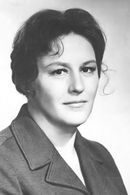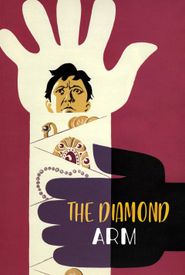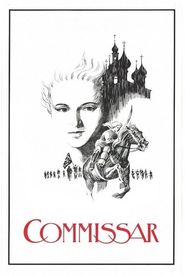Nonna Mordyukova, a renowned Soviet actress, was frequently cast as a Russian peasant woman.
Born Noyabrina (Nonna) Viktorovna Mordyukova on November 25, 1925, in Konstantinovka settlement, Donetsk province, Ukraine, Soviet Union (now Ukraine),she was the daughter of Viktor Konstantinovich Mordyukov and Irina Petrovna Mordyukova.
Growing up, Mordyukova was fond of movies and had a dream of becoming an actress. In the 1930s, she moved to Krasnodar province in Southern Russia, where her mother worked as chairwoman of a collective farm. There, she survived the Nazi occupation during World War II.
From 1945 to 1950, Mordyukova studied acting at the Soviet State Institute of Cinema (VGIK) under Boris Bibikov and Olga Pyzhova. She made her film debut as Ulyana Gromova in The Young Guard (1948),a patriotic movie about children in anti-fascist resistance, for which she won the State Stalin's Prize.
Mordyukova's subsequent string of movies typecast her as a peasant woman, and she became an epitome of a strong-willed Russian woman. She starred in over 60 leading and supporting roles in Soviet film and television productions.
One of her most notable roles was as Klavdia Vavilova in Komissar (1967),a Red Army cavalry commissar who is waylaid by an unexpected pregnancy. The film was censored for 20 years due to its pro-Semitic themes and was only released during Mikhail Gorbachev's perestroika and glasnost.
Mordyukova also gained acclaim for her supporting role as Superintendent Barbara Plyushch in The Diamond Arm (1969),a popular Russian comedy. She satirized a typical Soviet-style apartment manager, a woman of small mind but with a big voice.
Throughout her career, Mordyukova remained one of the most popular actresses in the Soviet Union. She was included in the top ten actresses of the 20th century according to the British Cinema Encyclopedia "Who is Who" in 1992.
After the collapse of the Soviet Union, Mordyukova's career slowed down, and she was cast in only three films during the last 15 years of her life. She wrote the book of memoirs "Ne plach, kazachka" (Don't Cry, Cossack Woman) and was designated People's actress of the USSR in 1974.
Mordyukova was married to her classmate, actor Vyacheslav Tikhonov, and they had one son, Vladimir Tikhonov. She died of heart failure and lung disease on July 6, 2008, in a Moscow hospital, and was laid to rest in Kuntsevskoe cemetery, Moscow, Russia.
























